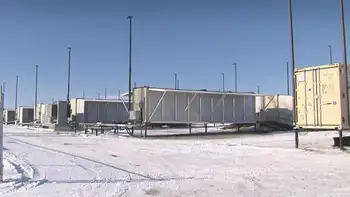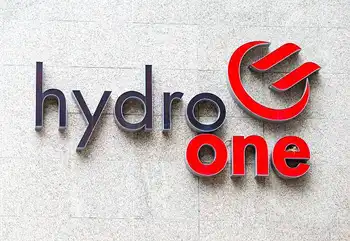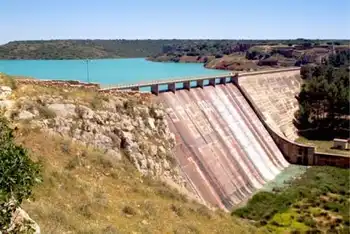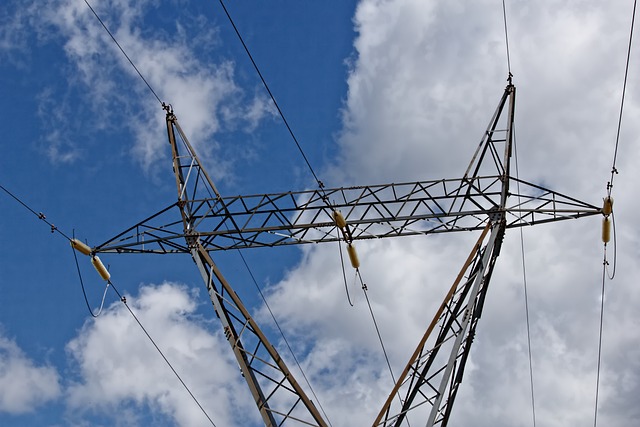Blair ready to go nuclear over future energy supplies
LONDON, ENGLAND - Tony Blair launched the case for a new generation of nuclear power stations, publishing the terms of a review which will lay out in stark terms the energy supply choices facing Britain.
The Prime Minister will tell the Confederation of British Industry (CBI) that he understands and shares the concerns over soaring gas prices - and accepts ministers can no longer duck tough decisions.
While he will stop short of personally endorsing nuclear power, the terms of his review will be defined in a way that points to no other viable alternative if Britain is to keep its pledge to reduce greenhouse gas. Mr Blair has been personally persuaded that only a new wave of nuclear power stations can fill the gap which will emerge when Britain's fleet of reactors starts to close down from next year.
The nuclear industry has said it requires no subsidy to build the plants - and can do so on existing sites. It said it simply requires planning permission and for ministers to place a floor under British energy prices to guard against a future collapse.
Through a series of low-key talks with potential nuclear energy companies, ministers have in turn suggested they can speed up planning permission process - which can normally take several months, or years.
A nuclear plant normally takes at least seven years to produce electricity on a mass scale. By 2012, all four of the UK's existing Magnox nuclear reactors will have been decommissioned.
But first Mr Blair is keen to create a political consensus for new nuclear power - knowing that the Conservatives are firmly in favour, even if the Liberal Democrats are firmly opposed.
Mr Blair will approach the debate with two arguments: that Britain cannot afford to be so dependent on increasingly volatile fossil fuel, and it needs to reduce greenhouse gas emissions.
With trade unions also warming to the idea - with many fearing for the 4,000 jobs in British Energy's nuclear plants - Mr Blair believes the consultation being launched today will set the conditions for new plants. He will argue for an extension in wind farms, but the review is expected to conclude that a diverse supply of energy sources must contain a strong nuclear component.
However, the backlash began yesterday, with the Lib Dems saying they suspect Mr Blair's energy review will be a whitewash.
Norman Baker, the Lib Dems' environment spokesman, said: "This review will serve little purpose if the Prime Minister has already made up his mind."
Environmental campaigners have said they are not convinced by arguments that nuclear power stations are carbon-neutral as they emit no greenhouse gasses - and that they alone have the clout to fill an energy gap.
Friends of the Earth (FoE) said it was preparing for a long battle where it hoped to make the case that renewable energy sources, such as wind farms, can fill the gap being left by the drop in nuclear energy.
Mr Blair "once again appears to be caving in to the demands of the friends of nuclear power", said an FoE spokesman in Scotland, adding that the CBI was an organisation in league with the nuclear industry.
FoE said it hopes the recent energy review will "show that nuclear power is unnecessary, as well as unsafe and uneconomic". Scotland, it added, "could be a world leader in developing a low-carbon, nuclear-free economy".
The Conservatives, by contrast, blamed Mr Blair for procrastination. David Willetts, the Tory industry spokesman, said the energy review "is testament to Labour's failure to tackle the problem a long time ago" and said it took an energy crisis to spur Mr Blair into action.
Malcolm Wicks, the energy minister, will lay out projections showing a steady decline in nuclear energy - starting with the closure of Dungeness A and Sizewell A next year, and Oldbury-on-Severn in 2008.
Although Mr Blair can give central government support to new nuclear plants, it is constitutionally impossible to grant this ahead of local planning authorities.
But Tory-controlled Suffolk County Council is understood to have told the Department of Trade and Industry that it is keen to keep the jobs associated with its Sizewell plant and is minded to approve an application.
By the same token, the Scottish Executive has made clear its hostility to replacing either Hunterston in Ayrshire or Torness in East Lothian, which employ 1,025 between them.
Jack McConnell, the First Minister, has said he will use his devolved powers to stop any application for a new nuclear plant. This is likely to end any question of renewing Hunterston or Torness, as nuclear firms are likely to go where planning application is easier.
Alex Salmond, leader of the Scottish National Party, said that he doubts Mr McConnell would withstand pressure from London if any were forthcoming. "If he can't agree a protocol on asylum seekers, then he won't be able to stand in the way of a nuclear power station," Mr Salmond said.
In spite of the heated opinions inside Holyrood, energy supply has little devolved aspect to it as Scotland is wired to the UK national grid, so it can still benefit from English nuclear power stations.
However, campaigners argue that Scotland has the most to gain from a strategy focusing on windfarms and carbon capture technology such as that planned in the GBP 400 million plant in Peterhead.
Related News

Electricity deal clinches $100M bitcoin mining operation in Medicine Hat
TORONTO - The City of Medicine Hat has agreed to supply electricity and lease land to a Toronto-based cryptocurrency mining company in a deal that will see $100 million in construction spending in the southern Alberta city.
The city will provide electric energy capacity of about 42 megawatts to Hut 8 Mining Corp., which will construct bitcoin mining facilities near the city's new Unit 16 power plant.
The operation is expected to be running by September and will triple the company's operating power to 60.7 megawatts, Hut 8 said.
#google#
"The signing of the electricity supply agreement and the land lease represents a key component…




